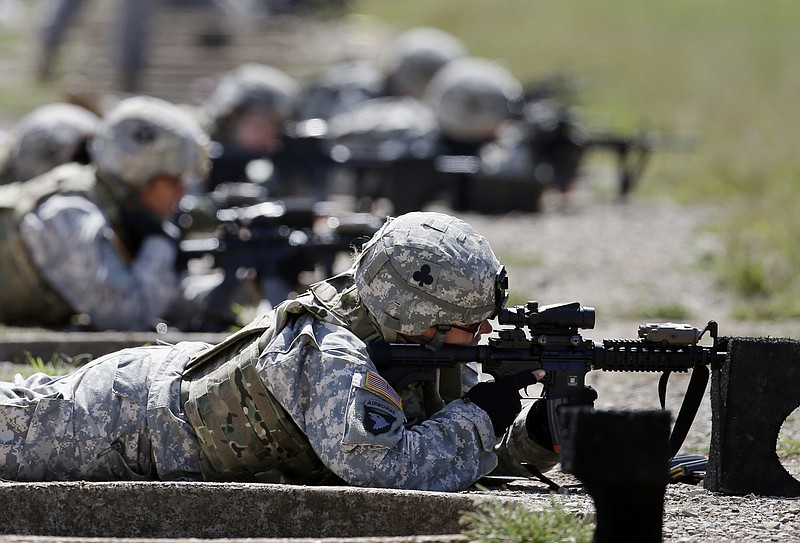WASHINGTON (AP) - Declaring "the days of Rambo are over," a top general said Tuesday that cultural, social and behavioral concerns may be bigger hurdles than tough physical fitness requirements for women looking to join the military's special operations units.
Maj. Gen. Bennet Sacolick, director of force management for U.S. Special Operations Command, said having seen women working alongside commando teams in Afghanistan, he is less concerned about their physical strength than the social issues that could arise. His comments came as military leaders mapped out plans Tuesday to develop physical and mental standards for thousands of combat jobs and slowly bring women into front-line positions, including possibly Navy SEAL teams or Army Ranger units, where they historically have been banned from serving.
"I'm actually more concerned with the men and their reaction to women in their formations, quite frankly," Sacolick said, reflecting concerns about whether men would accept women in units that have long operated as small, male-only teams working in close quarters and harsh environment for extended periods of time.
He said the military has moved beyond the Hollywood stereotype of a commando, instead looking for special operators who "can speak and learn a foreign language, who understand culture, who can work with indigenous populations and HAVE culturally attuned manners," Sacolick said. "When people fail in the special forces qualification course, predominantly they fail because they're not doing their homework."
Under details the military laid out Tuesday, women could start training as Army Rangers by mid-2015 and as Navy SEALs a year later. U.S. Special Operations Command is coordinating the studies of what commando jobs could be opened to women, what exceptions might be requested and when the transition would take place.
The proposals could mean that women are still excluded from some jobs if research and testing find that women could not be successful. But the services would have to defend such decisions to top Pentagon leaders.
Still, Sacolick said he could foresee a commando team of 11 men and one woman, if only a single female sought the job and qualified.
The military services have mapped out a schedule that includes reviewing and possibly changing the physical and mental requirements for certain infantry, armor, commando and other front-line positions across the Army, Navy, Air Force and Marines. Under the plans there would be one common requirements for men and women for each post, and it would be based on specific tasks troops need to do in order to perform those jobs. Officials say standards will not be lowered in order to bring women into certain posts.
Critics have questioned whether the change would result in any erosion of the military's readiness for battle.
Elaine Donnelly, head of the conservative Center for Military Readiness, has been a vocal critic of the proposed changes. She questioned efforts to review standards for military jobs, saying that, "Due to physical differences that have been affirmed by more than 30 years of studies and reports on the subject, all possible options for implementing "gender-neutral standards' would have the effect of lowering requirements."

